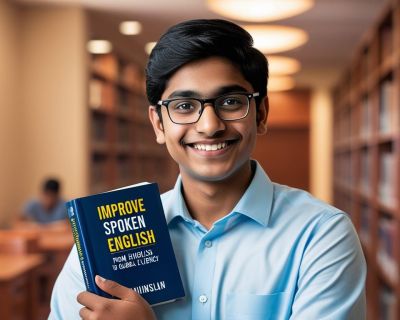Introduction
Paraphrasing is the skill of rewriting a sentence or passage in your own words while maintaining the original meaning. It is an essential technique for academic writing, professional communication, and language proficiency tests like the IELTS, TOEFL, and PTE.
In the IELTS exam, paraphrasing plays a vital role in all sections, particularly in Writing and Speaking, where expressing ideas in different ways can boost your score. It also helps in the Reading and Listening sections, as questions often use synonyms or reworded phrases from the passage or audio.
Mastering paraphrasing not only improves your language skills but also helps avoid plagiarism in academic and professional writing. This guide will provide effective strategies, examples, and practical exercises to help you refine your paraphrasing skills.
Why Is Paraphrasing Important?
1. Improves IELTS Writing and Speaking Scores
- The IELTS Writing test requires you to paraphrase the question statement in both Task 1 and Task 2.
- In the Speaking test, repeating the examiner’s words without paraphrasing may result in a lower fluency score.
2. Helps in Reading and Listening Comprehension
- IELTS Reading and Listening questions often use different wording from the passage or audio.
- Recognizing paraphrased information can help you identify correct answers quickly.
3. Prevents Plagiarism in Academic Writing
- Universities and research institutions strictly prohibit plagiarism.
- Proper paraphrasing ensures that you present ideas in your own words while giving credit to the original source.
4. Enhances Professional Communication
- In workplaces, paraphrasing helps in summarizing reports, writing emails, and presenting information effectively.
Effective Paraphrasing Techniques
1. Use Synonyms and Alternative Words
Replacing key words with synonyms is a fundamental paraphrasing technique.
Example:
- Original: Technology has transformed the way we communicate.
- Paraphrased: Advancements in technology have changed how people interact.
Tip: Not all words have direct synonyms. Ensure the synonym fits the context before using it.
2. Change Sentence Structure
Rearrange words and modify the sentence structure while keeping the meaning the same.
Example:
- Original: The government implemented new policies to improve healthcare services.
- Paraphrased: New policies were introduced by the government to enhance healthcare services.
Tip: This technique works well for passive and active voice transformations.
3. Use Different Word Forms
Changing the form of a word (noun, verb, adjective, or adverb) can help create variety in writing.
Example:
- Original: She completed the project successfully.
- Paraphrased: Her successful completion of the project was impressive.
Tip: Be mindful of grammatical accuracy when altering word forms.
4. Break Down Complex Sentences
Long sentences can be broken down into simpler sentences to make them easier to understand.
Example:
- Original: Due to rapid urbanization, many rural areas are experiencing a decline in population.
- Paraphrased: Many rural areas are losing their population because of fast urbanization.
Tip: Ensure that the core meaning remains intact while simplifying sentences.
5. Combine Sentences
Shorter sentences can be merged to form more cohesive and structured responses.
Example:
- Original: Tourism boosts the economy. It creates job opportunities for locals.
- Paraphrased: Tourism strengthens the economy by generating employment for local residents.
Tip: This technique is useful for IELTS Writing Task 2, where complex sentence structures are rewarded.
How to Practice Paraphrasing Effectively
1. Read and Rewrite
- Pick a paragraph from a news article or book and rewrite it in your own words.
- Compare your version with the original to check accuracy.
2. Play Synonym Replacement Games
- Take a sentence and replace as many words as possible with synonyms.
- Ensure the meaning remains unchanged.
3. Practice IELTS Writing Task 1 & 2 Introductions
- Paraphrase essay topics or graphs/charts in multiple ways.
- This will prepare you for different IELTS Writing prompts.
4. Watch English News or TED Talks
- Listen carefully and try summarizing key points using different words.
- This improves listening comprehension and paraphrasing speed.
How Kandor Can Help
Paraphrasing is a skill that improves with practice, and Kandor provides the right tools and resources to help you master it.
- AI-Powered IELTS Preparation: Kandor’s advanced AI provides instant feedback on your paraphrased responses.
- Free IELTS Writing Evaluations: Get expert suggestions on paraphrasing and sentence structure.
- Personalized Learning Plans: Improve your paraphrasing skills with tailored exercises and practice materials.
- Mock IELTS Tests with Analysis: Understand how well you paraphrase and where you need improvement.
With Kandor’s expert guidance, you can develop confidence in paraphrasing and achieve a higher IELTS band score.
Conclusion
Paraphrasing is a powerful skill that enhances language proficiency, academic writing, and test performance. It is essential for IELTS success, as it helps in Writing, Speaking, Reading, and Listening sections.
By practicing synonym replacement, sentence restructuring, and word form variation, you can improve your paraphrasing skills effectively. Whether you are preparing for the IELTS exam, university applications, or professional communication, mastering paraphrasing will give you a significant advantage.
With consistent practice and support from Kandor, you can embrace the power of paraphrasing and use it to achieve your academic and career goals.




















